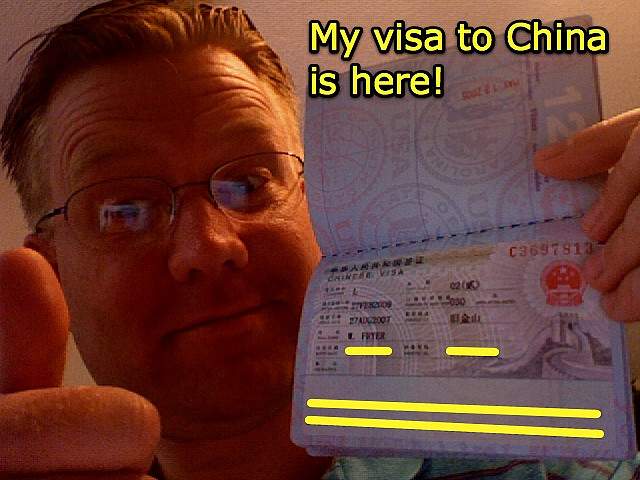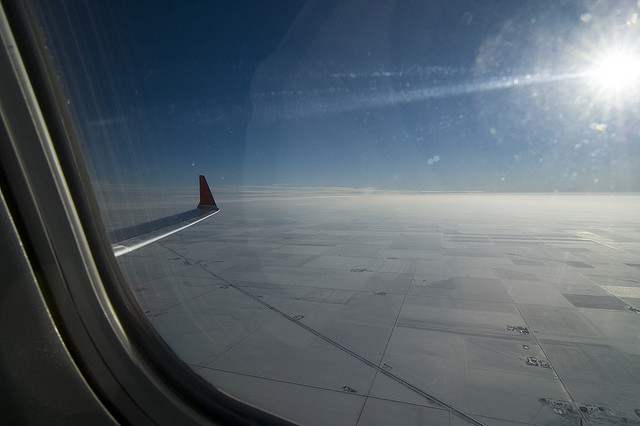Well your bags are packed and you’re ready to go, the taxi’s waiting he’s… Yeah, we know. So do The Chad Mitchell Trio, John Denver, Joni Mitchell, Jewel, Bjork and several seventh-grade chorus classes who are practicing as you read this. You’re leaving on a jetplane, to lands untrammeled (at least by you), and you’re well equipped, you’ve got your e-tickets, walking tours downloaded to your ipod, a money-secreting accessory and enough sunscreen to put out a dragon’s fire.
Book your flight and hotel ahead of time !
Here’s a quick list of some information you’ll want to be apprised of before getting into that taxi/supershuttle/mode of public transportation. These are from the ounce-of-prevention files from travelers who know, but may never have written a popular folk song. Think of them as the paperwork and the confetti sides of traveling. Need to know and you’ll be glad you knew.
[social]
The serious stuff (the fun stuff is below)
Visa/Reciprocity and Departure Taxes
Visas, reciprocity fees and the infamous departure tax can also combine to take a chunk out of your budget and trip up your travel plans for sure if they jump out of (seemingly) nowhere.
Visas
An American friend of mine who lives in and travels around sub-Saharan Africa with aplomb was recently surprised at the airport by the tourist-visa requirement for visiting Australia. She and her Australian partner had assumed that since Aussies don’t require a visa to visit the United States, the visa-free love was reciprocal. Minutes before her plane departed from Johannesburg, she was able to secure a just-in-the-nick-of-time visa at the airport counter, which is really just luck and happenstance. In many cases obtaining a visa is a much more arduous and time-consuming process, of which you should be well apprised long before your arrival at Terminal F, which stands for [expletive,] I need a visa?
Recommended sources for finding out about visa requirements individual country consulate websites, a visa information travel site like Project Visa or for U.S. citizens, a quick whirl on the U.S. Department of State’s Bureau of Consular Affairs website.
Articles on travel websites, like this one about South American visa fees, tend to be more up-to-date than guidebooks, as guidebooks have a longer lag time between research and publication. Travel message boards are a good place to look, and confirming information with other travelers you meet en route is also a great idea.
>>read more about Working Holiday Visas in Australia
Reciprocity Fees
These fees, payable at the airport are not technically a visa, and may not turn up on the Department of State’s website, so you might want to dig a little and find out if one of these not unpricey (upwards of $130 in the case of United States’ and Canadian nationals visiting Chile) “surprises” is happily awaiting you somewhere between getting off the plane and picking up your luggage.
Departure Taxes
Upon your departure from a country, you may be required to pay a departure tax, less commonly by land, but more often by air. I have heard these called “airport taxes” “refurbishing taxes” and even “the government wants a new palace taxes.” Whatever you call them, they’re yours to pay, and pay you must, or the plane you will not board.
They vary from country to country, and sometimes the fee will be included in your airline ticket price, and sometimes it will not. You’ll have to do some independent sleuthing to figure out just much cash or credit (if possible) you’ll be out on your departure from your vacation destination.
The credo here is: Traveler, inform thyself.
Health Concerns
Just like in the United States, where we are routinely immunized against a host of childhood diseases, so too are the babies of many countries immunized against potential threats. And just as importantly, so too should you be immunized before heading out. The truth is, a bit of Delhi belly probably isn’t going to kill you, but if yellow fever or cholera or hepatitis vaccinations are recommended (or required), you might want to take those seriously, and you might consider getting the polio or measles booster as well, depending on where you’re going and how long it’s been since you were vaccinated.
The U.S. government’s Centers for Disease Control and Prevention and the World Health Organization are good places to look for relevant health information. The CDC covers all countries, and the WHO gives a slightly different look at each nation, but only covers nations that have a relationship with the United Nations. Both of these entities also keep up-to-date information on etiologic hotspots at any given time, and you might want to make your plans accordingly. Walking into a Rift Valley Fever outbreak is not on anyone’s list of “must dos.”
In some cases, a government-issued International Certificate of inoculations and Vaccination with proof of yellow fever vaccination must be provided to enter a nation (see complete list here, and travelers who have no proof of vaccination are offered an on-the-spot vaccination (for a price) or refused entry.
For a tongue-in-cheek look on making sure you get sick, check out this recent Bootsnall article.
The bottom line: do a little research, inform yourself
With the health and bureaucracy out of the way, we’re down to the fun part of traveling. Nobody wants to count pennies or ceiling tiles and ceiling fan rotations in the local clinic. We’re all in this for the culture. Here are some tips for making your excellent adventure even a little more spectacular. Here the information falls into four categories; language, pop culture (sports and music), politics, and geography
>>read more about Travel Diseases You Want to Avoid
The fun stuff
Pick up a little lingo
Even if “everyone speaks English” where you’re going, chances are a) they don’t and b) they’ve still got a sense of national pride. Walking proudly into a hostel and proclaiming hello in the national language may gain you quizzical looks from your fellow travelers, but chances are the girl behind the front desk has been dealing with befuddled overnight-bus arrived travelers since the wee hours, and wouldn’t mind being extra nice to someone who’s actually made an effort to say hey like the locals do.
We’re not suggesting that you take a six week Khmer immersion course before setting out to conquer Angkor Wat, but a little sues’day (hi!) couldn’t hurt. You’ll probably also want to learn how to say please, thanks, sorry and goodbye. Your point is not to be the best foreign speaker of X that ever walked the planet, just to be a tiny bit better than the next guy, which can make a difference in your experience.
If you don’t have the time/energy/inclination to do this before you take off, consider buying a hostel employee or tour guide a coffee upon your arrival, and get all that stuff written down and repeated. You might even get a different look into the place you’re visiting, or an invitation to a locals-only haunt. If nothing else, it’s a great party trick when you get home and are waxing loquacious on your recent nation-by-nation passport stamp-collecting trip.
Become conversant in pop culture
No matter where you go, sports and entertainment are a source of national pride. Whether they’re authors, poets, musicians, footballers or racewalkers (seriously, details to follow), a little knowledge about the local heroes goes a long way towards making friends, even if only for the duration of your ferry ride.
>>read more about the Origin of 15 Popular Travel Expressions
Sports
People like to think their home is a place deeper in meaning than a tick on your country checklist. Even if your conversations with your fellow busmates are limited to meaningful glances and the handing of packages and children back and forth, you can make friends and influence people, build kinships with people you may never see again by pointing to some kids playing soccer out the window and saying Maradona!
During my brief stint in Ecuador, an athlete named Jefferson Pérez won the 1996 Olympic Gold medal in racewalking. From then on, any contentious situation could be brought down a notch by mumbling his name. Or ordering noodle soup, his favorite meal (or at least it was in 1996). Make trivia your middle name and you may as well drape yourself in the nation’s flag, just like an Olympic track and field competitor, but without the blisters and all that pesky training.
Music
Take a Youtube or Amazon tour, and learn a little about the music of the places you’re going. If a popular song comes on, and you can name that it is Juanes (even if you hate that camisa negra song), you’ll be instantly more popular with the people around you, and mouthing along to what you believe the lyrics might be will give you something to do while standing awkwardly at a disco, realizing that while Shakira’s hips may not lie, yours do, and you have no idea how to move them like a local.
Politics/What’s in a name
Knowing who the nation’s leader is, is also important, and as an American, makes a fine response to the shouting out of “Obama” wherever you go. Think of it as a political word association game, played without your knowledge or consent. Be sure to respond in kind.
They say: Obama!
You say: Cristina (Kirchner)!
They say: Obama!
You say: Zuma!
Most people will be pleasantly surprised that you know who their nation’s leader is, and might even take you aside and tell you their personal opinion of what’s going on in the country or which candidate they might have preferred or where they think the country is headed under the current leadership. You may want to clear of this technique in police states and dictatorships, responding to possible cries of Obama with a benign smile and Jefferson Pérez-style racewalking.
Learn some geography

Knowing the name capital city and most populous city (not always one in the same) will serve you well. Being familiar with major geographic features, like volcanoes, rivers, points of interest, etc, will help you to understand when people are giving you instructions, directions, etc. Plus it makes you feel like less of an idiot.
If the people in Snaefellsness, Iceland can know about the Grand Canyon, it seemed that the very least I could know about (and pronounce incorrectly), Jökulsárlón a glacial lagoon in southern Iceland, where seals quizically pop up from between the calved icebergs, blink, and then silently slip away. Even if the locals have never been there (as I have never been to the Grand Canyon), people like to talk about what’s pretty, or notable in their nation. It’s certainly better than talking about the global economic crisis or certain nations’ bankruptcy proceedings. Less touchy, anyway.
Being able to peel yourself out of your day-to-day life and spring into lands unknown is a great privilege. Learn a little before you go and save yourself days of frustration, thwarted travel plans and clinic visits. If all else fails, buy a pack of the local gum and offer it around. If you can’t come by friends honestly, at least you can borrow them until the flavor runs out.
>>read about the 20 world geography facts that might surprise you
Read more about:
- 6 Sure Fire Ways to Get Sick while You Travel
- Visa and Reciprocity Fees in South America
- The Coldest Places on Every Continent
- Learning Spanish in Mexico
Read more about author Eileen Smith and check out her other BootsnAll articles.
Photo credits:
China visa by Wesley Fryer on Flickr, Airplane window by bribriTO on Flickr, Nurse cartoon by Photocapy on Flickr, Maradona by timsnell on Flickr , Maps by Ed Yourdon on Flickr, books by Helder da Rocha on Flickr




